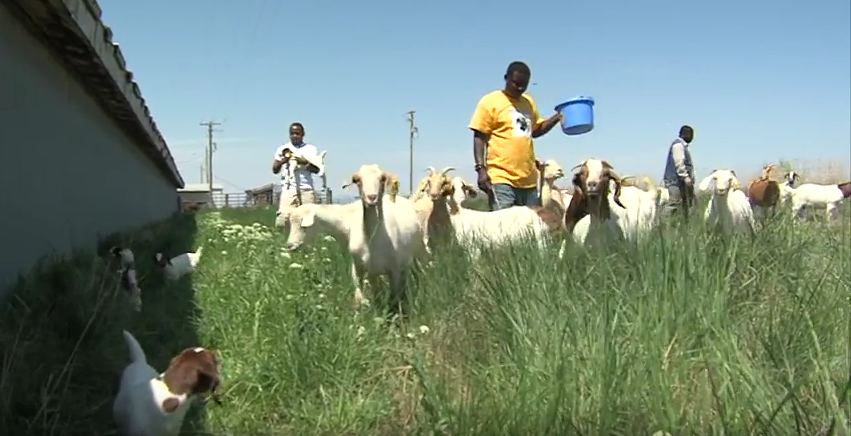Refugees in Utah are embracing their culture and providing bright futures for themselves and their families through the East African Refugee Goat Project of Utah.
The goat project brings the area’s Burundi, Somali Bajuni and Somali Bantu refugee communities together in raising goats to rent and sell. They do this to sustain their families and provide youth scholarships to community members.

The project partnered with the International Rescue Committee in 2013 to establish the goat farm located just west of the Salt Lake City International Airport. They started out with only 45 goats; now they are raising more than 200. The goats are leased by farmers for weed control and fire suppression and are used to sell goat meat commercially.
“It brings part of their culture that they can keep with them,” IRC Executive Director Patrick Poulin said. “Their parents had goats and their grandparents.”
It’s difficult for refugees to be displaced from their homes and leave the lives they knew, the goat farm is a place where they can feel connected with their new surroundings.
Somali Bajuni community representative Ismail Mohamad says he loves working with the goats. “Back home, it’s the same thing. When you wake up in the morning, you wake up to the animals in your yard. When I come here, it feels like home.”
Not only are the refugees doing work that is respected in their culture, but they are learning valuable business and people skills.
One of the main goals of the goat project is for refugees to sustain themselves financially as well as raise funds for youth education scholarships. The goat project ultimately teaches refugees the skills they need to move forward, receive an education and have a career.
“No matter where you are, you are still able to live how you want to live,” Somali Bantu community leader Abdikadir Hussein said. “This land is a land of opportunity. If you want to do something, you are able to do it.”
After spending 12 years in a refugee camp living on only corn and wheat flour, Hussein is grateful to work on the goat farm and raise funds so that people in his community can further their education. His ultimate goal is to help others fulfill their potential in the community.
The size of the goat herd has increased significantly, but the goat project still needs support from community members to raise additional funds for youth scholarships.
“We welcome every person in the community to take part in making this goat project a successful project,” Hussein said.
Volunteers provide essential service to the goat project. A team from Goldman Sachs recently built a new corral for show goats and new kidding pens designed for birthing goats.
BYU students from Professor Robert Wakefield’s global communications class visited the goat farm to interview refugees and create a video to share their story.
“The refugee situation is closer than we think,” BYU student Victoria Vincent said. “We are kind of ignorant and it would be better if we knew their situation. I think the best way to help refugees is to be aware of their needs and not make assumptions of what we can do to help. We just need to ask them.”




